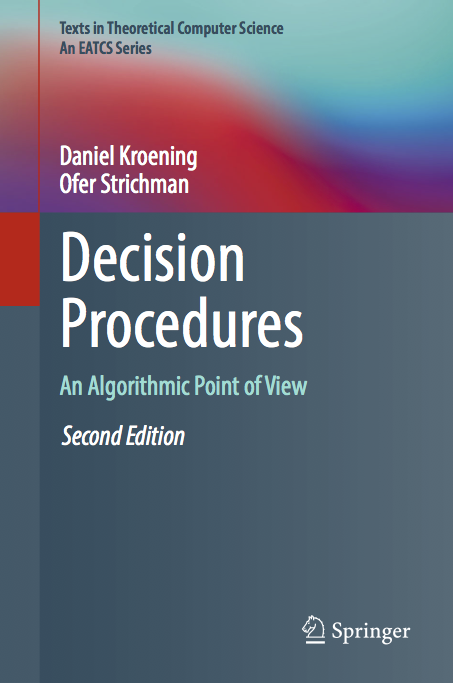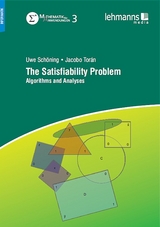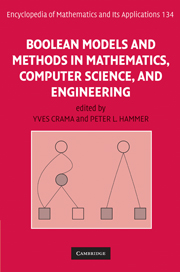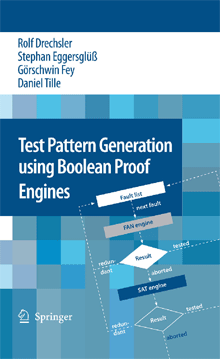CFP - 10th International Workshop on Satisfiability Checking and Symbolic Computation
10th International Workshop on Satisfiability Checking and Symbolic Computation
SC-Square 2025
August 2, 2025, Stuttgart Germany
The 10th SC-Square Workshop is a satellite event of CADE, held at the Duale Hochschule Baden-Württemberg (DHBW) Stuttgart, Baden-Württemberg Cooperative State University Stuttgart, Fakultät Technik in Stuttgart, Germany, from July 28 to 31, 2025.
Key Dates
- Submission deadline: May 7, 2025
- Notification: June 6, 2025
- Final version: June 20, 2025
- Workshop date: August 2, 2025
Scope
Symbolic Computation is concerned with the efficient algorithmic determination of exact solutions to complicated mathematical problems. Satisfiability Checking has recently started to tackle similar problems but with different algorithmic and technological solutions.
The two communities share many central interests, but researchers from these two communities rarely interact. Also, the lack of common or compatible interfaces for tools is an obstacle to their fruitful combination. Bridges between the communities in the form of common platforms and road-maps are necessary to initiate an exchange, and to support and direct their interaction. The aim of this workshop is to provide an opportunity to discuss, share knowledge and experience across both communities.
Submitting to the Workshop
The workshop series has emerged from an H2020 FETOPEN CSA project “SC-Square”, which ran from 2016 to 2018. It has been continued aiming at building bridges between Satisfiability Checking and Symbolic Computation. It is open for submission and participation to everyone interested in the topics, whether or not they were members or associates of the original project.
The topics of interest include but are not limited to:
- Satisfiability Checking (SAT/SMT) for Symbolic Computation
- Symbolic Computation for Satisfiability Checking
- Applications relying on both Symbolic Computation and Satisfiability Checking
- Combination of Symbolic Computation and Satisfiability Checking tools
- Quantifier elimination and decision procedures and their embedding into logic provers, including but not limited to SMT solvers, and computer algebra software
- Computational Geometry
- Formalized mathematics
- Application of machine learning in a formal setting
Submission guidelines
Submissions should be in English, formatted in Springer LNCS style and submitted via EasyChair and then selecting the Track: 10th SC-Square Workshop.
We invite three types of submissions:
- FULL PAPERS on research, case studies or tool development should present unpublished work not submitted elsewhere (with a limit of 16 pages, not counting references)
- EXTENDED ABSTRACTS on research, case studies or tool development should present unpublished (potentially ongoing) work not submitted elsewhere (2–4 pages, not counting references)
- PRESENTATION-ONLY submissions on already published work, work to be published elsewhere, or work in progress on SC-Square related open problems or future challenges. Please submit an abstract for approval by the PC (with a limit of 2 pages).
To receive the appropriate level of peer review, please declare your category of your submission by prefixing the title on the EasyChair form with “FP”, “EA” or “PO” accordingly.
For consistency, all submissions must use the LNCS style. Current llncs latex files are available from “LaTeX2e Proceedings Templates download”
We plan to publish the proceedings of the workshop digital form, hosted with CEUR-WS. Authors may opt out of this, should they prefer to publish the material elsewhere.
People from industry and business are warmly invited to submit papers to describe their problems, challenges, goals, and expectations for the SC-Square community.
Workshop Co-Chairs
- Mădălina Erașcu (West University of Timişoara, RO)
- Mikoláš Janota (Czech Institute of Informatics, Robotics and Cybernetics (CIIRC), CZ)
Program Committee
- Haniel Barbosa (Universidade Federal de Minas Gerais, Brazil)
- Martin Brain (City University of London, UK)
- Curtis Bright (University of Windsor, CA)
- Christopher Brown (United States Naval Academy, USA)
- James H. Davenport (University of Bath, UK)
- Matthew England (Coventry University, UK)
- Pascal Fontaine (Université de Liege, Belgium)
- Vijay Ganesh (Georgia Tech, USA)
- Petra Hozzová (Czech Technical University, CZ)
- Ilias Kotsireas (Wilfrid Laurier University, CA)
- Konstantin Korovin (University of Manchester, UK)
- Robert Lewis (Brown University, US)
- Jasper Nalbach (RWTH Aachen University, DE)
- Stefan Ratschan (Academy of Sciences of the Czech Republic, CZ)
- Ali K. Uncu (University of Bath, UK)










